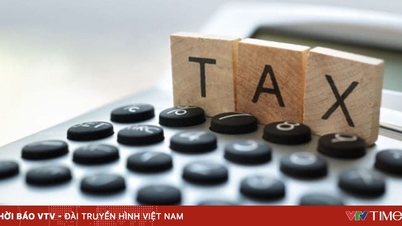This transparency not only helps each individual proactively fulfill their civic duties but also brings peace of mind and avoids unnecessary legal risks in daily financial activities.
Correct understanding of taxable income sources
Under current regulations, not all money flowing into a bank account is subject to personal income tax (PIT). Tax liability only arises when that cash flow is identified as income from labor, production, business, investment or other forms of value-added activities. These sources of income are clearly classified to ensure fair and transparent tax collection.

The most familiar source of income for most people is income from wages and salaries. This is the remuneration received from the employer, usually withholding tax according to a progressive tax schedule before payment. In addition, with the development of the freelance economy, income from production and personal business is becoming more and more popular. Activities such as online sales via social networks, livestreaming, renting houses/cars, providing consulting services, or working as a freelancer (design, writing) are all considered business activities. Individuals with income from this source will have to pay tax if the total revenue exceeds 100 million VND per year.
The financial investment sector also generates many taxable cash flows. Capital investment income, also known as "money making money", includes things like interest earned from lending to other individuals, dividends from owning stocks. When investors sell their assets, the resulting profit is called capital gain. Typical examples are profits from selling stocks on the stock exchange or reselling capital contributions in a company. In particular, income from real estate transfers is an important item, including all profits from buying and selling houses, land and assets attached to land.
In addition to regular income sources, the law also provides for taxes on some other non-recurring income. Income from winnings such as lottery winnings or winnings in promotional programs of enterprises is an example.
Tax will be calculated on the part of the prize value that exceeds 10 million VND. Similarly, income from copyright, which is the amount of money that authors and inventors receive when they allow others to use their works and inventions, is also subject to tax. Finally, income from franchising, for example when the owner of a coffee brand allows others to open stores and collects franchise fees, is also a source of personal income that must be declared.
Transparency between income and civil transactions
In response to public concerns, tax industry representatives have repeatedly emphasized that the management goal is not all transfer transactions, but only focuses on cash flows that are essentially income from economic activities.
The law clearly distinguishes between income and ordinary civil transactions. Amounts such as parents providing for their children, husband and wife transferring living expenses to each other, friends borrowing and receiving back money, or wedding gifts, funeral gifts... are not taxable income at all. They are simply transfers of assets between individuals, without creating added value.
To proactively protect your rights and avoid unnecessary misunderstandings, each individual should make a habit of clearly stating the content when making a transaction. Instead of leaving it blank or writing in general terms, specific content will be the clearest evidence for explanation when needed.
Tightening tax management for electronic transactions is a necessary step in the context of digitalization, aiming to create a fair business environment and prevent budget losses. Therefore, equipping yourself with financial knowledge and understanding tax regulations is not only a responsibility but also an essential skill to help each citizen feel confident and secure in modern economic life.
Source: https://daibieunhandan.vn/nam-ro-8-dong-tien-chiu-thue-de-tranh-rui-ro-khi-giao-dich-qua-ngan-hang-10389190.html



![[Photo] Prime Minister Pham Minh Chinh chairs the Government's online conference with localities](https://vphoto.vietnam.vn/thumb/1200x675/vietnam/resource/IMAGE/2025/10/5/264793cfb4404c63a701d235ff43e1bd)

![[Photo] Prime Minister Pham Minh Chinh launched a peak emulation campaign to achieve achievements in celebration of the 14th National Party Congress](https://vphoto.vietnam.vn/thumb/1200x675/vietnam/resource/IMAGE/2025/10/5/8869ec5cdbc740f58fbf2ae73f065076)























































![[VIDEO] Summary of Petrovietnam's 50th Anniversary Ceremony](https://vphoto.vietnam.vn/thumb/402x226/vietnam/resource/IMAGE/2025/10/4/abe133bdb8114793a16d4fe3e5bd0f12)

![[VIDEO] GENERAL SECRETARY TO LAM AWARDS PETROVIETNAM 8 GOLDEN WORDS: "PIONEER - EXCELLENT - SUSTAINABLE - GLOBAL"](https://vphoto.vietnam.vn/thumb/402x226/vietnam/resource/IMAGE/2025/7/23/c2fdb48863e846cfa9fb8e6ea9cf44e7)




































Comment (0)